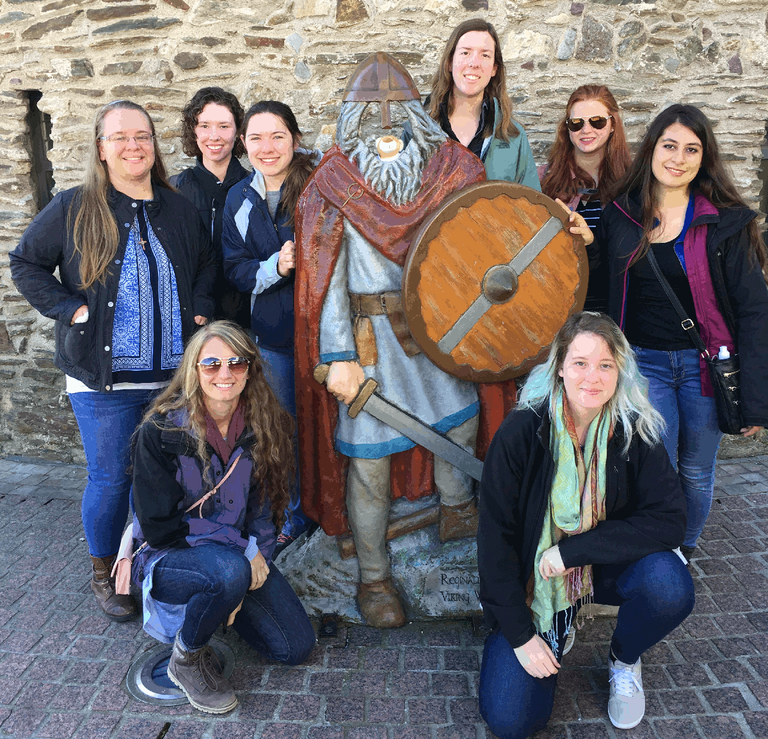Posted: June 11, 2018
Dr. Drohan's course on the co-evolution of soil and civilization visited Wexford, Ireland this May for its embedded course component.

The class in Waterford, Ireland. standing, L-R: Caitlin Rauch, Anne McGraw, Kylie Hint, Melissa Miller, Hanna Albright, and Nicole Rella. Kneeling (L) chaperone Mara Cloutier and (R) student Bethany Thatcher. Dr. Drohan took the picture.
How do a landscape and its people evolve through time? SOILS 499A & B examines this question and focuses particularly on the role of land ownership, government, and its effect on people and natural resources, especially in the context of the evolution of culture, society, and civilization. Readings examine the role that forms of government have had in shaping culture and land tenure, management of natural resources with population growth, and the stability of civilizations. Finally, SOILS 499A and B examines our current civilization in the context of past ones, and evaluates its future stability.
Students who participated in the Maymester abroad program (SOILS 499b, 0.5 cr) visited with staff of Teagasc and its Catchment's Program, and the Department of Agriculture Food and Marine (both at the Johnstown Castle location). Students toured the Teagasc facilities and also visited one of the study catchments. Discussions took place on how agriculture in Ireland takes place and how the European Union influences it. Special thanks to Teagasc staff: Per-Erik Melander, Karl Richards, Eddie Burgess, Dominika Krol, Anna Fenelon and Aoife Stafford. Special thanks to DAFM staff: Mandy Murphy, Pamela Boyle, and Leanne Roche. The students also visited Teagasc's Kildaton College to learn how the government and its two-year agricultural college work together to improve farmer knowledge and actions. Kildalton Assistant Principal Grainne McMahon and Kildalton Open Source Sustainable Farm Team leader David Devaney gave a great overview of the school and David led the students on a nice walking tour of facilities.
Next the class examined the history of Ireland with visits to the Irish National Heritage Park living history museum and the Viking towns of Waterford and Wexford. At the Irish National Heritage park students received a great tour from Derek O'Brien and park manager Christopher Hayes. This year's students also met Denis Shine and Stephen Mandrel of the Irish Archaeology Field School. Denis and Stephen provided the students with a nice overview of Irish Archaeology and the field programs available to students.

